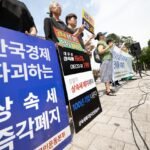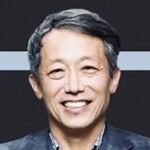In the second quarter of this year, the market share of Samsung Electronics Co. in the South Korean smartphone market slightly increased, while Apple’s market share declined.
According to market research firm Counterpoint Research on Thursday, Samsung Electronics recorded a 76% market share in the domestic smartphone market in the second quarter, up 1 percentage point from 75% in the first quarter, influenced by the release of mid-range models such as the Galaxy A15 and Galaxy Buddy 3.
Samsung Electronics market share is predicted to increase further in the third quarter due to the launch of new products like the Galaxy Z Flip 6 in July.
Similarly, in the third quarter of last year, Samsung’s market share grew from 70% to 84% due to the same effect.
Apple’s market share, which was 35% in the fourth quarter of last year, plunged to 24% in the first quarter of this year and dropped to 22% in the second quarter.
Counterpoint Research explained that sales were dampened due to high prices and demand in sight for new releases.
The market share of other products, apart from Samsung and Apple, remained minimal at around 2%.
Meanwhile, Counterpoint Research noted that the size of the domestic smartphone market in the second quarter slightly decreased year over year due to a lack of replacement demand.
By Chae-Yeon Kim
why29@hankyung.com















